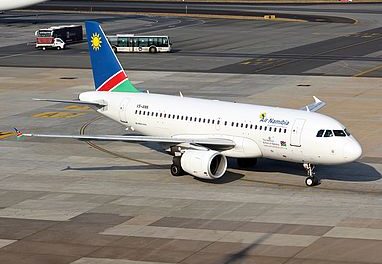
No rhino powder for KAZA
Reports that the governments of Zimbabwe, Botswana, Zambia, Namibia and Angola agreed to sell rhino horn powder in clinics and pharmacies are “malicious and false,” says Dr Jeff Ramsay, Botswana’s chief of government communication.
Ramsay says there has never been any discussion or agreement between the governments to sell rhino horn powder in clinics and pharmacies.
According to a TimesLive report which appeared on 24 March, the Zimbabwe, Botswana, Zambia, Namibia and Angolan governments are “heading for a collision with rhino conservationists” after it emerged that they had agreed to the sale of rhino horn powder in clinics and pharmacies.
The report further states that the measure was taken by the five member states of the Kavango-Zambezi Transfrontier Conservation Area (KAZA) in a bid to safeguard the rhino species from poachers.
Francis Nhema, Zimbabwe’s Minister of Environment and Tourism, was quoted as saying that the KAZA states agreed to “demystify the rhino issue by selling horn powder in clinics as well as pharmacies in all the KAZA member states. We hope this will shift the attention of the poachers. Instead of going through dangerous operations where one is likely to die, or even kill the animals, walking into a pharmacy will be a safer decision.”
However, Ramsay stressed that the government of Botswana supports the continued ban on the sale of rhino horns in all forms.
“The Government of Botswana strongly supports the continued ban on the sale of rhino horns in any and all forms. The TimesLive article is, therefore, in our view not only baseless but also clearly malicious in its intent. In this respect we strongly condemn TimesLive and its publishers for their irresponsible and unethical mass circulation of such seriously misleading content,” he said in a statement.
Last year, 448 rhino were found dead in South Africa, according to Stop Rhino Poaching, a conservation organisation. Just last month, three poaching incidents were reported in South Africa. That country is home to more than 80% of Africa’s rhino populations.
In an effort to prevent poaching in Namibia, the Ministry of Environment and Tourism has worked with local communities and non-governmental organisations since independence to re-build the Namibian black rhino population. Through projects such as the Black Rhino Custodianship Scheme, the Ministry has re-established black rhino in former ranges while increasing population numbers in the Etosha National Park.
According to the Environment Ministry, severe poaching in the 1970s and 80s diminished the rhino population to the brink of extinction. To prevent this from happening again, the country has put some measures in place including training staff of the Ministry of Environment and Tourism in tracking and law enforcement, weapons handling and crime scene investigation. Monitoring programmes and database has also been put in place with the assistance of the Save the Rhino Trust and many animals have been immobilised and fitted with transmitters to alert, should an animal be dormant or disappear for a few hours. The Ministry of Environment and Tourism also set up an inter-ministerial committee to help advice and assist in the combating of poaching and to investigate cases should they occur. Last year, an SMS hotline was also introduced to step up rhino protection with the assistance of the general public.











































